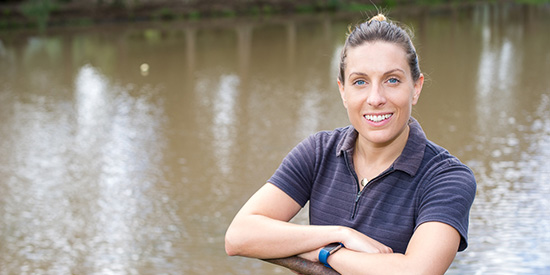Science superstar shows Deakin women lead the pack
Media release
A Deakin University engineer has been named a 'Superstar of STEM' in a prestigious national program promoting the achievements of women in science and technology.
Dr Ellen Moon, a lecturer in Deakin's School of Engineering, was welcomed into Science and Technology Australia's 2019-20 Superstars of STEM Program by Minister for Industry, Science and Technology, the Hon Karen Andrews, at an event in Melbourne this morning.
Dr Moon is among 60 women researchers recognised as part of the program, which aims to smash society's gender assumptions about scientists and increase the public visibility of women in STEM.
Through the program participants are equipped with advanced communication skills and then provided with opportunities to use these skills - in the media, on the stage and in speaking with decision makers.
Deakin's Executive Dean for the Faculty of Science, Engineering and Built Environment Professor Karen Hapgood congratulated Dr Moon on her achievement.
"Superstars of STEM is a fantastic initiative creating a critical mass of Australian female scientists and technologists who can act as role models for all scientists - but especially for young women and girls - as well as working towards equal representation in the media of women and men in STEM," Professor Hapgood said.
"Deakin knows that when women are given the opportunity to succeed in STEM they don't just contribute, they lead the pack.
"Deakin has two female Australian Laureates who are leading the world in STEM research. Professor Maria Forsyth's research into battery technology is breaking new ground, and Professor Svetha Venkatesh is recognised as one of Australia's leading experts in pattern analysis for accelerating scientific innovation."
Dr Moon’s research focusses on heavy metals in the environment: how they move through landscapes, the risk they pose, and how to clean them up. She is passionate about engaging with the public and inspiring budding scientists too.
Earlier this year Dr Moon travelled to Antarctica on an all-female voyage as part of the Homeward Bound program, a leadership initiative for women with a science background.
"I am really excited about this opportunity to learn more about science communication and to continue my work promoting science to young people in the Geelong area, especially young girls," Dr Moon said.
"A really important component of getting more girls involved in science and technology at school is having those visible role models there so they can look and see girls or women that are like them, and know they can do it too."

